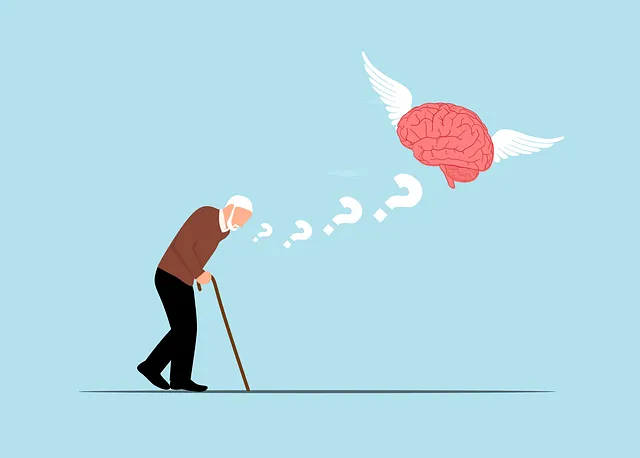The Broomfield Kaiser Permanente Mental Health Access Center employs the Resilient Front (RFM) framework to promote mental well-being and resilience in its community. RFM equips individuals with coping mechanisms, enhances crisis intervention skills, and fosters mental health literacy. Through exercises focusing on cognitive reframing, mindfulness, and self-esteem improvement, this approach builds emotional flexibility and mental fortitude. Programs at the center use RFM to help patients manage stress, enhance self-esteem, and develop effective coping strategies for long-term mental health stability.
“Explore the transformative power of Resilience, Flexibility, and Mastery (RFM) at Broomfield Kaiser Permanente Mental Health Access Center. This comprehensive guide delves into the core principles of RFM and its role in empowering individuals to navigate life’s challenges. Through a deep exploration of resilience-building exercises, we uncover effective strategies that foster mental well-being. Discover how these practices enhance patient experiences and promote long-lasting resilience at Broomfield Kaiser Permanente Mental Health Access Center.”
- Understanding RFM and its Role at Broomfield Kaiser Permanente Mental Health Access Center
- Resilience Building Exercises: A Deep Dive into Effective Strategies
- Accessing Mental Health Support: The Impact of RFM on Patient Resilience
Understanding RFM and its Role at Broomfield Kaiser Permanente Mental Health Access Center

At Broomfield Kaiser Permanente Mental Health Access Center, Resilient Front (RFM) serves as a cornerstone in fostering mental well-being and resilience among its community members. RFM is a comprehensive framework designed to help individuals navigate life’s challenges by equipping them with effective coping strategies and enhancing their ability to bounce back from adversity. By integrating this approach, the center aims to empower patients and community members alike to build resilience, prevent burnout, and access crucial mental health resources.
The Broomfield Kaiser Permanente mental health access center recognizes that stress and crisis are inevitable parts of life, but with the right tools, individuals can develop a sense of control and resilience. RFM, therefore, plays a pivotal role in their Public Awareness Campaigns Development by offering practical guidance on Crisis Intervention. Through targeted interventions and exercises tailored to individual needs, the center promotes mental health literacy and provides accessible support systems, ensuring that folks have the resources they need to weather any storm.
Resilience Building Exercises: A Deep Dive into Effective Strategies

Resilience building exercises are a crucial component of mental health care, as advocated by institutions like Broomfield Kaiser Permanente Mental Health Access Center. These strategies empower individuals to cope with life’s challenges and setbacks, fostering emotional well-being that extends beyond mere survival. Through various techniques, from cognitive reframing to mindfulness practices, individuals learn to navigate difficult situations with enhanced flexibility and adaptability.
Effective resilience exercises focus on Self-Esteem Improvement, a cornerstone of emotional resilience. Public Awareness Campaigns Development and Emotional Well-being Promotion Techniques play a vital role in educating people about the importance of resilience and providing accessible tools to cultivate it. By integrating these strategies into daily life, individuals can build mental fortitude, ensuring they emerge stronger from adversity rather than being defined by it.
Accessing Mental Health Support: The Impact of RFM on Patient Resilience

At Broomfield Kaiser Permanente mental health access center, we recognize that building resilience is a cornerstone of overall well-being. Our programs, including those utilizing Resilient Factors Model (RFM), are designed to empower individuals with tools for managing stress and anxiety, enhancing self-esteem, and fostering mental fortitude. RFM is a powerful framework that helps patients navigate life’s challenges by identifying personal strengths and resources. By focusing on three key factors—Resourcefulness, Resilience, and Meaning—we guide individuals to develop effective coping strategies and build a deeper sense of inner strength.
This approach not only aids in anxiety relief but also promotes long-term mental health stability. Through various exercises, patients learn to adapt to stressors, bounce back from setbacks, and find purpose in their lives. The impact is profound: improved self-esteem improvement, enhanced coping mechanisms, and a greater ability to navigate life’s ups and downs with resilience. At Broomfield Kaiser Permanente, we are committed to providing accessible mental health support that empowers individuals to lead happier, more fulfilling lives.
The implementation of RFM at the Broomfield Kaiser Permanente Mental Health Access Center has proven to be a game-changer in enhancing patient resilience. By understanding an individual’s Response, Frequency, and Monetary involvement, healthcare providers can tailor resilience-building exercises that profoundly impact mental health support access. These exercises, delving into effective strategies, empower patients to navigate life’s challenges, fostering a vibrant tapestry of emotional well-being within the bustling environment of the access center.





